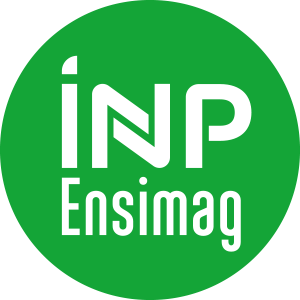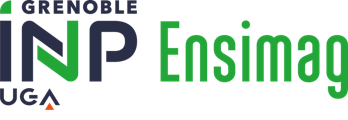Volumes horaires
- CM 45.0
- TP 12.0
Crédits ECTS
Crédits ECTS 4.0
Objectif(s)
Understanding of Fundamental features and signal processing for Wireless or modern communication
systems (UMTS, GSM, WIFI; TNT, DVB; Galileo, ADSL,…), especially :
• Fundamentals of wireless communications systems (channel modeling, fading, interference, …)
• Techniques of Diversity (MIMO, …), of Multiple access/Multiplexing (CDMA, OFDM, …),
• Techniques of Coding (convolutive codes, turbo-code), relay based network / cooperative networks
• Signal processing algorithms in the receiver: equalization, Viterbi algorithm, synchronization (if time left),
Contact Laurent ROSContenu(s)
Main PART:
I- Introduction to the course
II- Baseband modeling of the Radio-Frequency (RF) channel [12h]
(including some possible RF imperfections: carrier and delay synchronization error,
Multi-path propagation, Doppler effect, Statistical Models for the radio-mobile channel variation)
III- Performances of the transmission through a “flat fading Rayleigh” channel and with Diversity Techniques [10h] (including review of AWGN optimal transmission : performance, capacity, …)
IV- Multi?user communication (by CDMA) and Multi?carrier Modulation (by OFDM) [8h]
ADDITIONAL TOPICS (introduction)
V- Linear Equalization
VI- convolutional encoding and VITERBI Algorithm
VII- Soft Decoding, Turbo codes
Prérequis
Basic courses in :
- Determinitic and Random Signal Processing
- Introduction to digital communications (Digital modulations, Nyquist Criterion, Matched Filter)
L'examen existe uniquement en anglais 
CONTRÔLE CONTINU :
Type d'évaluation: TP.
SESSION NORMALE :
Type d'examen : écrit avec documents autorisés (N1)
et compte-rendus de séances pour les travaux pratiques (N2).
Salle spécifique : non
Durée : 2 heures
Documents autorisés : dictionnaires, tous documents de cours (polycopiés), tous documents manuscrits :
Documents interdits : livres
Matériel :
- matériel autorisé: calculatrices
- matériel interdit: téléphone portable et autre matériel communicant (ordinateur, ...)
SESSION DE RATTRAPAGE :
Type d'examen pour la session 2 (par défaut): écrit avec documents autorisés (N1)
Salle spécifique : non
Durée : 2 heures
Même conditions (de Matériels et documents) que pour session 1
Commentaires : la note de TP (N2) ne se rattrape pas.
session 1
N = 0.7*N1 + 0.3*N2
<br>
session 2
N = N1
Le cours est donné uniquement en anglais 
- Gordon L. Stuber. Principles of Mobile Communication. Kluwer, 2000.
- David Tse, Pramod Viswanath. Fundamentals of Wireless Communication. Cambridge University Press, 2005.
- Andrea Goldsmith, « Wireless Communications », Cambridge University Press, 2005.
- Theodore Rappaport, « Wireless Communications: Principles and Practice », 2nd Edition, Prentice-Hall International Eds, 2001
- J.G. Proakis. “Digital Communications”. McGraw-Hill, 3rd edition, 2000.



